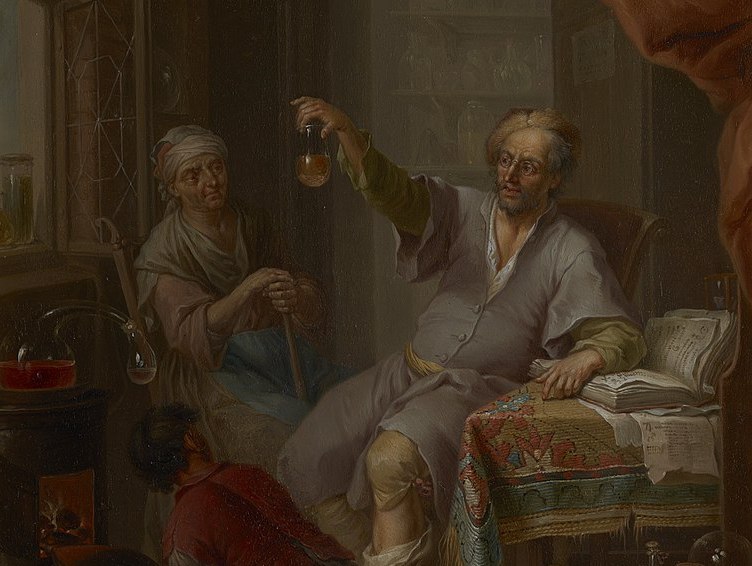

What’s the weirdest thing you learned this week? Well, whatever it is, we promise you’ll have an even weirder answer if you listen to PopSci’s hit podcast. The Weirdest Thing I Learned This Week hits Apple, Anchor, and everywhere else you listen to podcasts every Wednesday morning. It’s your new favorite source for the strangest science-adjacent facts, figures, and Wikipedia spirals the editors of Popular Science can muster. If you like the stories in this post, we guarantee you’ll love the show.
Fact: Doctors used to smell and even taste urine to diagnose all sorts of diseases
By Rachel Feltman
Doctors often take urine samples to diagnose their patients. But before we had modern lab tests, physicians would have to visually examine, smell, and even taste their patients’ pee to analyze it. In this week’s episode, I get into the fascinating (and sometimes gross) details of uroscopy, or the clinical examination of urine. The practice dates back thousands of years, and persisted until pretty recently. Of course, every medical therapy has its detractors. Naysayers were particularly turned off by the fact that diagnosing diseases based on urine color had a low barrier to entry, which is to say that just about anyone could get their hands on a diagnostic color wheel and start charging for medical services. This led to some pee-related quackery, and one famous paper went so far as to refer to urine as “a harlot and a liar.”
See also: uromancy. Yes, people really tried to tell fortunes—and hunt down witches—using pee. History is a weird place.
Tune in to hear all this and more, including a rundown of all the different colors your urine can be and what those colors mean. Purple urine bag syndrome is my personal favorite, though I wouldn’t recommend having it.
Fact: Cats and cochlear implants have something in common
By Jason Lederman
The cat telephone might just be the weirdest fact I’ve found yet for this podcast. In 1929, a professor at Princeton named Ernest Glen Wever, along with his research assistant Charles William Bray, wanted to learn how sound travels across the auditory nerve. Naturally, they figured the best way to do this was to turn a living cat into a working telephone.
I’ll save you the gory details in this post, but the work was pretty fascinating, albeit morbid. And their results proved that analog sounds could be converted into digital files, laying the groundwork for cochlear implants.
I also discuss the difference between hearing aids and cochlear implants, as well as what hearing with a cochlear implant sounds like (the clip starts at 3:40).

I may not have won on this week’s episode, but I still feel like the cat telephone is the weirdest thing I learned this week, and maybe ever in my entire life.
Fact: A math problem that stumped at least 1,000 mathematicians has an incredibly simple answer
By Claire Maldarelli
In a 1990 issue of Parade magazine, columnist Marilyn Vos Savant published a brain teaser known as the Monty Hall Problem. It was based on a similar problem presented in the 1970s game show, Let’s Make A Deal.
Once published—with answer key included—it caused such an uproar that almost 1,000 mathematicians from universities across the country called and wrote in to tell her she was wrong. Spoiler: She was absolutely correct.
Here’s how it went: Suppose you’re on a game show, and you’re given the choice of three doors. Behind one door is a car; behind the others, goats. You pick a door (let’s call it door number one) and the host, who knows what’s behind them each, opens another door (number two). This one has a goat. He then says to you, “Do you want to pick door number three?” Is it to your advantage to switch your choice from one to three?
Most people think it would not be to their advantage to switch. Listen to this week’s episode of Weirdest Thing to understand why that’s wrong, why you should always switch, and why despite knowing they should switch, most people still won’t.
If you like The Weirdest Thing I Learned This Week, please subscribe, rate, and review us on Apple Podcasts (yes, even if you don’t listen to us on Apple—it really does help other weirdos find the show, because of algorithms and stuff). You can also join in the weirdness in our Facebook group and bedeck yourself in weirdo merchandise from our Threadless shop.
